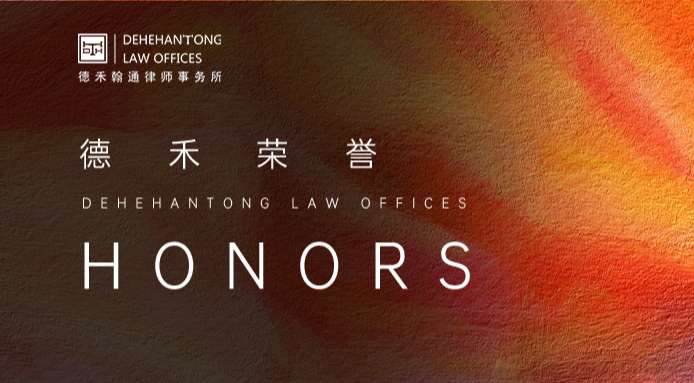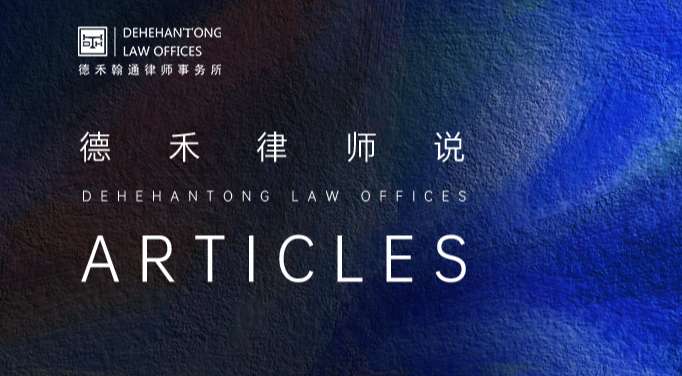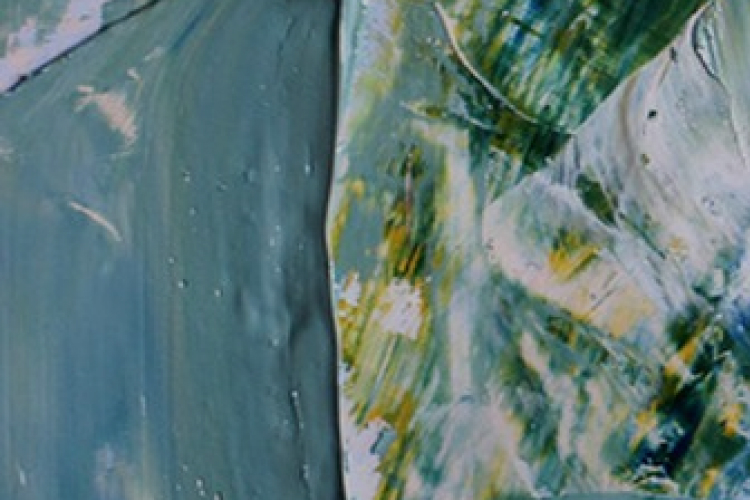The High-end Forum on the Rule of Law of Cultural Law and Internet Information Content and the 8th Academic Forum on "Eastern Communication Law" were successfully concluded
On October 19, 2024, nearly 60 experts and scholars from more than 30 universities, scientific research institutions, academic journals and law firms gathered in the beautiful Huazheng Park, hosted by the Scientific Research Office of East China University of Political Science and Law and Taofen School of Journalism and Communication. The "High-end Forum on Cultural Law and Internet Information Content Rule of Law and the 8th Academic Forum on Oriental Communication Law" co-organized by Dehehantong Law Offices was successfully held and concluded in Songjiang, Shanghai. The forum was provided with academic guidance by the Legal Journalism Theory Research Committee of All-China Legal Journalism Association, the Media Regulations and Ethics Committee of China Journalism History Society, the Applied Journalism and Communication Committee of China Journalism History Society, and the Cultural Law Research Institute of Shanghai Law Society.
The forum mainly focused on the theme of cultural law discipline construction, serving the high-quality development of the Internet, network communication and protection of rights according to law, online public opinion ecology and governance according to law, cultural security and Internet information governance, network governance and platform responsibility, and the participants made in-depth discussions and exchanges in various forms such as cutting-edge dialogues, keynote reports, and comments. It explores various in-depth frontier topics of media, rule of law, culture, scientific research, service, academia and industry.
Associate Professor Sun Xiangfei, Deputy Minister of the Propaganda Department of the Party Committee of East China University of Political Science and Law and Dean of the New Media Data Research Institute, presided over the opening ceremony of the forum. Tang Bo, chairman of the Trade Union of East China University of Political Science and Law and former Deputy secretary of the Party Committee, Gu Liping, chairman of the Media Law and Ethics Professional Committee of China Journalism History Society, Li Qingwei, president of the Cultural Law Research Institute of Shanghai Law Society, Qiu Wenyu, director of the Management Committee of Dehehantong Shanghai Office, and Fan Yuji, dean of Taofen School of Journalism and Communication of East China University of Political Science and Law, delivered opening speeches as representatives in turn.
Taofen School of Journalism and Communication, East China University of Political Science and Law has held the "Eastern Communication Law" academic Forum for eight consecutive years, and is committed to promoting research in the cross-field of communication and law. With the rapid development of Internet technology, cultural communication is becoming more and more digital, and the inheritance and protection of culture increasingly depend on the network information content as a media carrier. How to effectively manage the network information content and then promote the benign transmission and inheritance of Chinese culture in the Internet field has become a highly concerned topic of journalism and communication, law and other disciplines and even multi-disciplines. With the continuous evolution of the digital society and the iterative development of artificial intelligence, the communication ecology is undergoing revolutionary changes, and the regulations and capabilities that used to be effective in regulating the orderly development of the media industry are facing many new problems and challenges. "As researchers committed to journalism and communication regulations, we must have a strong sense of mission and responsibility, and strive to find a scientific path to solve the dilemma of The Times in future research, so as to make due academic contributions to the orderly development of media and the progress of social civilization." Professor Gu Liping, chairman of the Media Law and Ethics Professional Committee of the Chinese Society of Journalism and History, believes that with the continuous progress of digital technology and the deep involvement of artificial intelligence in social life, there are two major phenomena that need to be paid attention to. The second is that artificial intelligence has deeply entered the life process, and the autonomy of the subject is continuing to be reduced.
Lawyer Qiu Wenyu said in his speech that Dehehantong, as the co-organizer of this forum, will be committed to the research and practice of cultural law and the rule of law of Internet information content. In line with the needs of The Times, Dehehantong Law Offices established the Media and Entertainment Business Committee and accumulated a lot of legal practice experience in the field of entertainment media. Lawyer Qiu Wenyu pointed out that the construction of cultural law discipline in China is actively exploring the organic integration of traditional culture and modern legal system. Facing the new cultural development environment in the Internet era, it is important and necessary to strengthen the communication and dialogue between cultural rule of law and Internet information content rule of law, and promote the deep integration between the two for the construction of network culture with Chinese characteristics. Dehehantong will work together with colleagues in academia and industry to contribute to the construction of socialist network culture with Chinese characteristics.
In the cutting-edge dialogue session, the Forum invited many experts and scholars for in-depth discussions and exchanges: Under the chairmanship of Professor Zheng Ning, Director of the Cultural Rule of Law Research Center of the Communication University of China, Professor Xiong Wenzhao of Shandong University, Professor Shi Dongpo, Director of the Department of Law Teaching and Research of the Party School of the CPC Xiamen Municipal Committee, Professor Li Qingwei of Law School of Shanghai University, President of the Cultural Law Research Institute of Shanghai Law Society, Professor CAI Wujin of the National Institute of Cultural Development of Wuhan University, Professor Zhang Wenxiang of Cyberspace Security College of Zhejiang University, and Professor Zhang Wenxiang of Ningbo Institute of Technology of Zhejiang University in the "First Group of Cultural Law Discipline Construction. Setting up Frontier Dialogue "session, with the theme of" Strengthening the construction of cultural law discipline and promoting the modernization of network culture rule of law ".
Under the chairmanship of Professor Chen Xiaochun from the School of Journalism and Communication of Southwest University of Political Science and Law, Prof. Gu Liping, School of Journalism and Communication, Nanjing Normal University; Prof. Liu Youli, Special Professor, School of Journalism and Communication, Shanghai University; Prof. Li Danlin, Department of Law, School of Cultural Industry Management, Communication University of China; Prof. Chen Qingan, Research Fellow, Institute of Law, Shanghai Academy of Social Sciences; Prof. Wang Weiliang, Vice Dean, School of Media and Communication, Shandong University of Political Science and Law, participated in the "Dialogue on the Forefront of High-quality Development of the Service Internet" session. The discussion was held under the theme of "Strengthening the rule of Law in Cyberspace and serving the high-quality development of the Internet".
In the paper discussion session, the forum was divided into four topics: "Network communication and legal protection of rights", "Network public opinion ecology and legal governance", "cultural security and network information governance", and "Network governance and platform responsibility". Lawyer Jizen communicated with the speakers in combination with the cases he handled in practice, involving voice infringement cases. In practice, according to the differences in the transaction structure of different industries, more responsible subjects may be involved. For example, when disputes are caused by the failure to remove the watermark of hidden sound in the production of commercial advertisements, The balance of interests and the final responsibility among the producers, advertising agencies, advertising spokespersons and brand parties need to be analyzed according to the specific situation. In practice, broadcasting and hosting voice personality right claim infringement cases, mass media communication infringement of reputation rights and other cases decided by enterprises will apply the safe harbor principle of infringement liability, namely the "notice-delete" principle, that is, the communication with the platform tends to be valued in practice. In the determination of platform infringement liability, the court will also consider whether the infringed person sends the stop infringement notice in time. As for the criminal cases related to the abuse of personal biometric information caused by deep forgery technology, in practice, it is more manifested as the forgery of pornographic content, and most of them are still in the stage of "shallow forgery". The examination and prosecution of such cases depend on the analysis and identification of procuratorial organs, and more suggestions are made to regulate the objects of legal interests infringed by them in the form of judicial interpretation. As for the "breach of trust", the establishment may be too hasty.
Jiang Hua, a researcher at the School of Journalism of Fudan University and deputy editor of News University, Chen Qingan, a researcher at the Institute of Law of the Shanghai Academy of Social Sciences and deputy editor of Politics and Law, Liu Jitao, a professor at the School of Law of Shandong Normal University and responsible editor of Journal of Shandong Normal University (Social Science Edition), and Liu Peng, editor-in-chief of News Reporter, respectively served as the overall reviewers of the four topics.
Zhang Wenxiang, a double professor at the School of Cyberspace Security of Zhejiang University and Ningbo Institute of Technology of Zhejiang University, presented the first group of paper discussions, and Li Yang, an associate professor at the School of Journalism and Communication of Northwest University, presented the second group of paper discussions.
The exchange of this academic forum has further enhanced the influence and radiation of cultural law, which is of great significance for the construction of socialist network culture with Chinese characteristics. Such cross-border academic exchanges provide new ideas and suggestions for the development of the rule of law in online information content, which not only promotes the deep integration of cultural law and the rule of law in online information content, but also provides theoretical support and practical guidance for the development of the rule of law in online information content. There was laughter and laughter in the venue, and the guests eagerly explored the in-depth cutting-edge topics of media, rule of law, culture, scientific research, service, academia and industry.
Recommended Information
-
ArticlesAnalysis and Suggestions of tax-related clauses of the contract (II) : settlement method and occurrence time of tax obligation2024-10-18
-
ArticlesHow to judge trademark infringement in practice -- Interpret the relevant points in combination with the thinking of judgment2024-10-17
-
UpdatesDehehantong successfully entered the warehouse of CITIC Trust Asset Management Co., LTD2024-10-14
-
HonorsDehehantong Law Offices Shortlisted for 2024 ALB East China Labour & Employment Law Firm Awards - Local2024-10-09
-
ArticlesAnalysis and Suggestions of tax-related clauses of Contracts (1) : tax identity, contract price and tax amount2024-10-09















